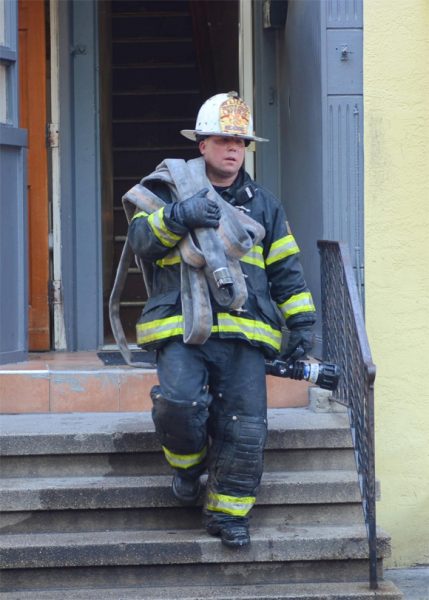Get the help you need right now 855-900-8437 Get Help Now
Get the help you need right now 855-900-8437 Get Help Now
March 28, 2018
Some trauma scars are easy to see. The wounds that cause them were treated with bandages and antibiotic ointment. Many of these scars don’t cause pain or discomfort anymore, and they exist only on the surface.
But not all scars are visible. Some are hidden and internal. While one in five fire fighters/paramedics will struggle with post-traumatic stress disorder (PTSD) at some point in their career, it’s an injury that can remain invisible to those around you.
If you’re a fire fighter or paramedic with PTSD or any other mental disorder, or if you suspect you have one, recovery is possible:

The first step in healing from an illness is understanding the illness. Your knowledge of PTSD and related disorders may be limited. If you know or suspect you have PTSD following a traumatic incident, learning more about it can help normalize and explain what you are experiencing. There are many online resources from trustworthy health-related organizations, such as The National Center for PTSD, where you can learn more about mental health disorders.
When you educate yourself about PTSD, you can take the next major step: seeking help. The IAFF Center of Excellence specializes in the treatment of PTSD and other mental illnesses, along with addictions. By calling the Center, you can speak with a professional who can enroll you in a treatment program, if you’re ready. Once enrolled, a medical professional can assess your symptoms, make a formal diagnosis and create a treatment plan that works for you.
PTSD is a common disorder for first responders, but anyone can develop it. You’re not alone. In fact, an estimated 7 percent of Americans will experience PTSD at some point in their lives. About 3.6 percent of U.S. adults aged 18 to 54 (5.2 million people) have PTSD during any given year. But being diagnosed doesn’t mean life should take a back seat to your disorder. PTSD is treatable, and it’s possible for you to have PTSD and still live a healthy and productive life.
With cuts, bruises and related wounds, it’s easy to understand the method of treatment, but PTSD is a different kind of trauma that requires a different kind of treatment — treatment that will take longer than a few days. No one method is right for everyone. There are various trauma-focused psychotherapies and medications commonly used, which you can discuss with your health care provider. The IAFF Center of Excellence is staffed with medical professionals who can determine the best option for your specific needs.
After undergoing treatment for PTSD, you can apply various coping mechanisms to help keep your mind healthy. Being treated for PTSD isn’t a sign of weakness. Asking for help is a sign of strength. Being diagnosed doesn’t mean you’re a failure or that there’s something wrong with you. Not everyone responds to trauma in the same way, and that’s okay.
If you’re an IAFF member struggling with the aftermath (nightmares, flashbacks, etc.) of a bad call, the IAFF Center of Excellence can help. Professionals can evaluate your symptoms and determine if you have PTSD or any other mental disorder, all of which can be treated at our facility. Representatives are available 24 hours a day, seven days a week. Call today, and begin healing your unseen scars.
Medical Disclaimer: The IAFF Center of Excellence aims to improve the quality of life for people struggling with a substance use or mental health disorder with fact-based content about the nature of behavioral health conditions, treatment options and their related outcomes. We publish material that is researched, cited, edited and reviewed by licensed medical professionals. The information we provide is not intended to be a substitute for professional medical advice, diagnosis or treatment. It should not be used in place of the advice of your physician or other qualified healthcare provider.